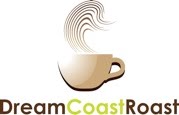Caffeine in general is so ninja, the average person doesn't realize that it's in a lot of stuff - coffee, tea, many cola drinks and over the counter medication. Yet coffee always gets accused of being villain because caffeine is most commonly ingested through coffee.
If you are one of those people who drink several cups of coffee daily, you probably wonder what all that coffee is doing to you. ROFL! Yeah right! If you're one of THOSE people you probably don't care! But seriously, is coffee really bad for you, or is drinking coffee just a harmless vice? Can it be possible that coffee is actually good for us? Look at the results of some recent research: .
- There are nutritional advisers who claim that coffee makes us age faster, wears out our adrenal glands, and wreaks unspeakable damage to our cells.
- In some older people, coffee or tea can improve memory and alertness enough to partly offset the effects of aging.
- Other researchers claim that coffee, especially if it's freshly roasted and ground, is full of antioxidants, and therefore good for us. Most doctors say that drinking one or two cups of coffee a day is probably not harmful. And of course there are others who say we ought to avoid caffeine altogether.
- Caffeine gives brain cells a temporary boost . But the amount required to improve mental performance is not very high. Even half a cup of coffee will be enough to give your brain a boost that lasts several hours. Which is precisely why many of us drink coffee, especially the first thing in the morning.
Avoid excessive consumption of coffee ( or anything else for that matter). What's excessive? Depends on the individual. If four cups of coffee a day makes you jittery, nauseous, suffer insomnia, kick the dog, cuss out your boss and walk of your job or demonstrate and other extreme behaviors, you should probably cut back on the caffeine. Seriously. You really should.
If you don't suffer from any of the above by your fourth cup....carry on!

